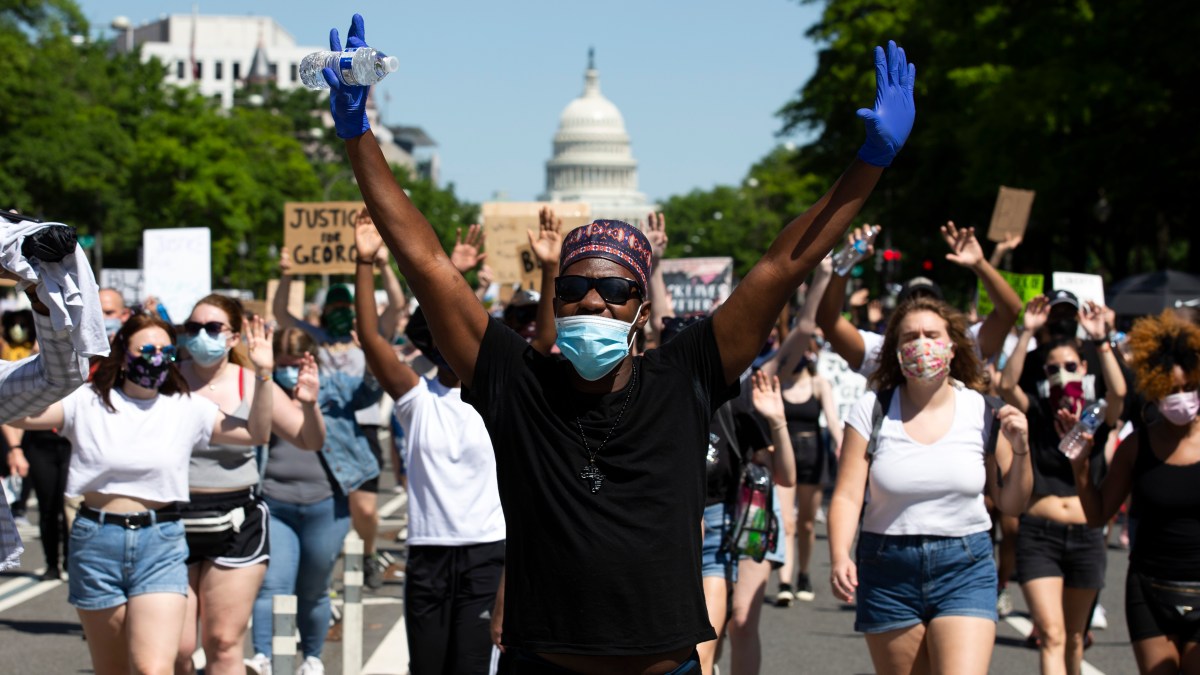Politics
Protests Erupt Nationwide Following George Floyd’s Death

The death of George Floyd on May 25, 2020, sparked widespread protests across the United States, highlighting deep-seated issues of racial injustice and police brutality. The situation escalated dramatically over the following weekend, leading to curfews imposed in numerous cities as authorities grappled with increasingly violent demonstrations.
On May 29, Mayor Muriel Bowser of Washington announced the end of a pandemic-related “stay-at-home” order. By May 31, however, residents were instructed to return to their homes under a new curfew aimed at controlling the unrest that ensued after Floyd’s death at the hands of a police officer in Minneapolis. This rapid shift left many questioning the state of civil liberties and public safety.
The protests began peacefully but quickly turned confrontational as tensions rose. In Washington, D.C., on the night of May 31, law enforcement deployed rubber bullets and tear gas against demonstrators, many of whom were advocating for justice and equality. This aggressive response was particularly notable during an incident where President Trump sought to project a message of law and order, making headlines as he posed for photographs outside St John’s Church, located just across from the White House.
As cities across the nation implemented curfews and other measures, the atmosphere was charged with anger and frustration. Protesters, driven by a desire for change, gathered in large numbers, often facing off against heavily armed police forces. The scenes were reminiscent of a country grappling with its identity and values, torn between calls for justice and demands for security.
The events of that weekend marked a significant turning point in American society, with public discourse shifting dramatically. Calls for systemic reform in policing and broader societal changes gained traction, leading to a renewed focus on racial equity and justice. As the protests continued into June and beyond, they underscored the urgency of addressing long-standing inequalities in American life.
The impact of those days in late May 2020 reverberated throughout the nation and beyond, as the Black Lives Matter movement gained international attention. The protests served not only as a response to Floyd’s death but also as a catalyst for a global conversation about race, justice, and the demand for accountability from those in positions of power.
As the situation unfolded, many individuals reflected on their own experiences and the implications for the future. The events of that summer prompted significant discussions about the role of law enforcement and the need for comprehensive reforms to prevent future tragedies. The legacy of George Floyd’s death continues to influence conversations about race relations and justice reform in the United States and around the world.
-

 Health3 months ago
Health3 months agoNeurologist Warns Excessive Use of Supplements Can Harm Brain
-

 Health4 months ago
Health4 months agoFiona Phillips’ Husband Shares Heartfelt Update on Her Alzheimer’s Journey
-

 Science2 months ago
Science2 months agoBrian Cox Addresses Claims of Alien Probe in 3I/ATLAS Discovery
-

 Science2 months ago
Science2 months agoNASA Investigates Unusual Comet 3I/ATLAS; New Findings Emerge
-

 Science2 months ago
Science2 months agoScientists Examine 3I/ATLAS: Alien Artifact or Cosmic Oddity?
-

 Entertainment2 months ago
Entertainment2 months agoLewis Cope Addresses Accusations of Dance Training Advantage
-

 Entertainment5 months ago
Entertainment5 months agoKerry Katona Discusses Future Baby Plans and Brian McFadden’s Wedding
-

 Science2 months ago
Science2 months agoNASA Investigates Speedy Object 3I/ATLAS, Sparking Speculation
-

 Entertainment5 months ago
Entertainment5 months agoEmmerdale Faces Tension as Dylan and April’s Lives Hang in the Balance
-

 World3 months ago
World3 months agoCole Palmer’s Cryptic Message to Kobbie Mainoo Following Loan Talks
-

 World4 weeks ago
World4 weeks agoBailey and Rebecca Announce Heartbreaking Split After MAFS Reunion
-

 Science2 months ago
Science2 months agoNASA Scientists Explore Origins of 3I/ATLAS, a Fast-Moving Visitor









